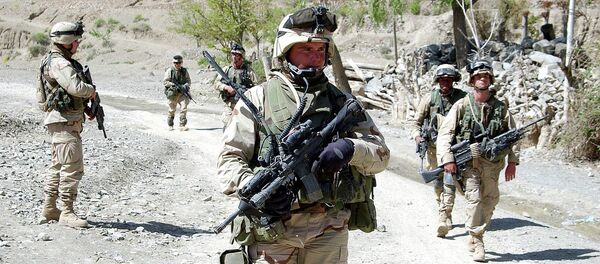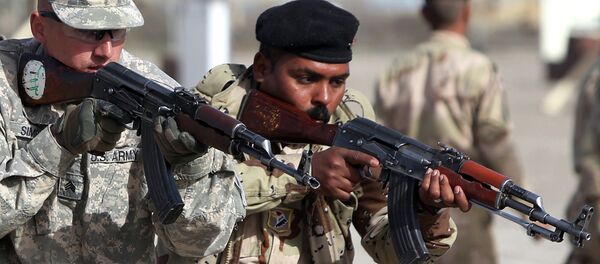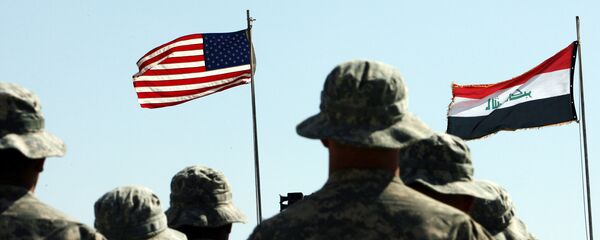In his analysis, published in The National Interest magazine on Monday, Davis noted that "Americans have always loved the classic battles between good and evil: minutemen vs. Redcoats, the Greatest Generation vs. Hitler, Darth Vader vs. Luke Skywalker…We like the clean lines that allow us to love and support the good guy while hating and opposing the bad guy. No complications, no difficult moral decisions to make."
This line of thinking, the analyst noted, leads to tremendous complications when it comes to the war in Syria, given that neither the so-called 'moderate' rebels nor Syrian President Bashar Assad seem to fit the simple 'good guy'/'bad guy' dichotomy Americans know and love.
Davis pointed out that while the Western media has repeatedly reported on and amplified the scale of the alleged 'atrocities' committed by the Syrian government against the country's civilian population, "only rarely…do these same outlets report on the war crimes frequently committed by the [moderate] opposition groups we support."
"What happens next?", Davis queried. "Will these groups work together to form an effective interim government, leading to fair and free elections and an end to the violence?"
"The likelier scenario," the analyst continued, "is that once Assad is out of power, the strongest of these groups will turn on each other in a new fight for control of the new government."
Unfortunately, Davis noted, the world has already knows exactly how such a dynamic tends to play out, with the Libyan experience.
The expert recalled how, "in 2011, the US supported rebel groups in Libya against Qaddafi by conducting hundreds of cruise missile and airstrikes. After the Libyan leader was killed by rebels, President Barack Obama optimistically said to the Libyan people: 'You have won your revolution. And now, we will be a partner as you forge a future that provides dignity, freedom and opportunity'."
With this experience in mind, and in light of the fact that the US has already observed "all participants of the war in Syria [committing] war crimes," the analyst noted that "American policymakers have to face some hard questions with no good answers: if there aren't any good guys, who do we support – or do we support anyone?"
"It may be," he continued, "that none of the warring sides represent or would support our values and thus, regardless of which side ultimately prevails, American interests will not be served." Given these facts, the expert suggested that perhaps "the best we could hope for might be to use US diplomatic and humanitarian resources to encourage the combatants to resolve their differences, while trying to contain the violence and leading humanitarian efforts to lessen the suffering of the innocents."
Preempting the response of hawks, both left and right, by noting that "such a policy would likely be attacked as 'defeatist' or as a failure to lead," Davis countered by noting that "the hard facts" are that US attempts to resolve civil conflicts in other countries in recent years have resulted only in "a worsening of the violence, an increase in the suffering of those we've sought to help, and ultimately, the establishment of regimes that neither represent American values nor provide peace and democracy to their people."
Trustingly, and perhaps naively, Davis concludes with the thought that "as we near the Presidential primary season, we can only hope that the ultimate winner –whether Republic or Democrat or Independent, male or female –will show the wisdom, moral courage and leadership necessary to preserve American values and interests."
The most likely scenario, based on the balance of forces emerging among the rebel and terrorist groups in recent months and years, is that groups like al-Nusra and ISIL, together with the hundreds of other jihadist gangs believed to be operating in the country, would fight it out with each other, before conducting a genocidal campaign to expel or simply murder anyone considered a heretic, as their ideology proposes.
A retired US Army Lt. Col with 21 years of service under his belt, Davis is a veteran of the US war in Afghanistan, and a veteran of both US campaigns in Iraq, serving in Operation Desert Storm in 1991, and then again in 2009.





